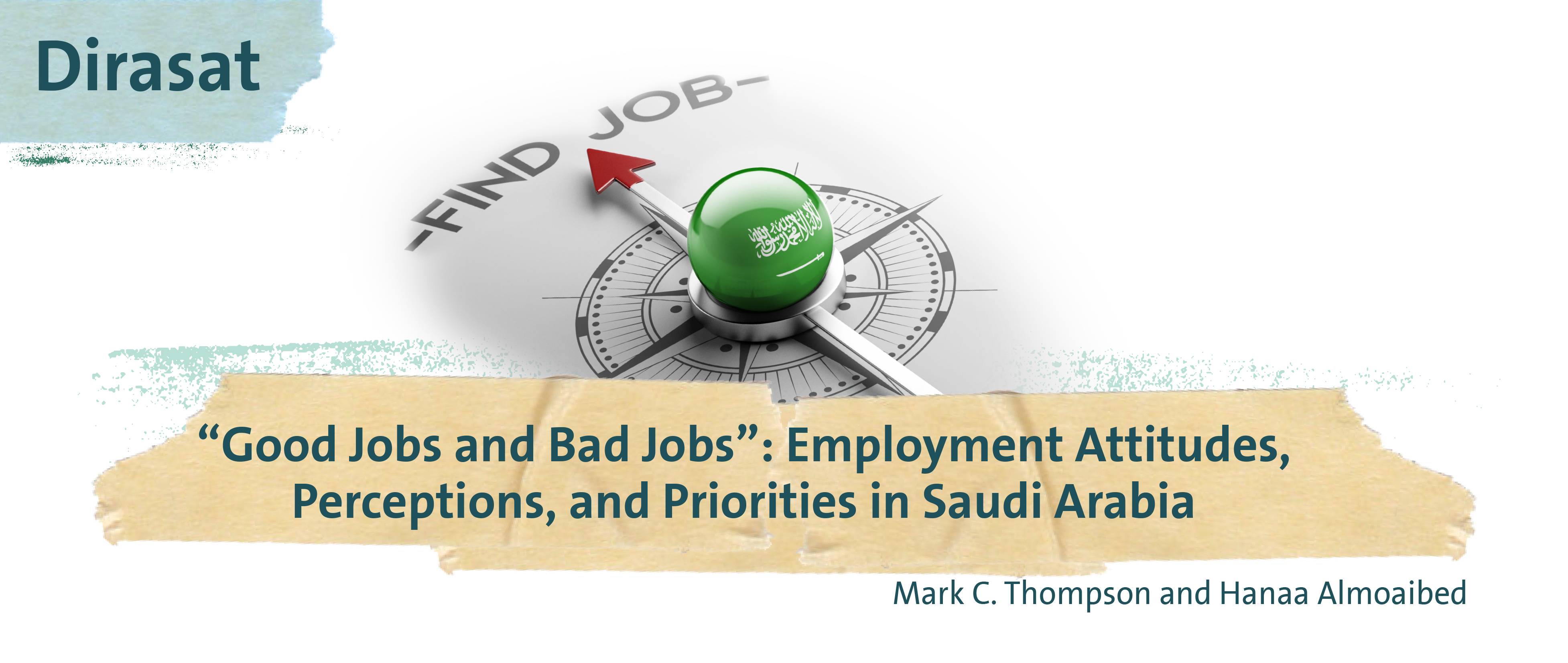“Good Jobs and Bad Jobs”: Employment Attitudes, Perceptions, and Priorities in Saudi Arabia
Crown Prince Mohammed bin Salman addressed the contentious issue of (un)employment among Saudi nationals in an interview on 22nd April 2021, marking the fifth anniversary of the launch of Saudi Vision 2030. Highlighting the difference between “good jobs and bad jobs,” the Crown Prince defined a “good job” as one that provides basic needs, the ability to save, and the opportunity to lead a productive, healthy life. A good job, that is, a productive one, also mitigates the deadening impact of underemployment, an understudied phenomenon, especially in Saudi Arabia. Yet, the concept of what constitutes a good job is contested and evolving. For instance, the impact of work upon health, family life, and social integration are additional considerations to the economic dimensions outlined by the Crown Prince. As well as the nature of work itself, perceptions of good and bad jobs are also influenced by contextual social factors, such as socioeconomic and/or educational background, class, and gender. To date, there has been little research into employment attitudes and priorities in Saudi Arabia outside of the realm of business and management, and studies on human resource management. Thus, drawing on qualitative research conducted with Saudi nationals, this paper traces the evolution of perceptions of work within Saudi Arabia and highlights the historical and cultural factors that underpin definitions of good and bad jobs. We conclude that in order to foster positive attitudes, structural transformations in the labor market should draw on the Kingdom’s legacy of risk taking and foster a culture that celebrates the opportunities and failures that result from new ventures.

